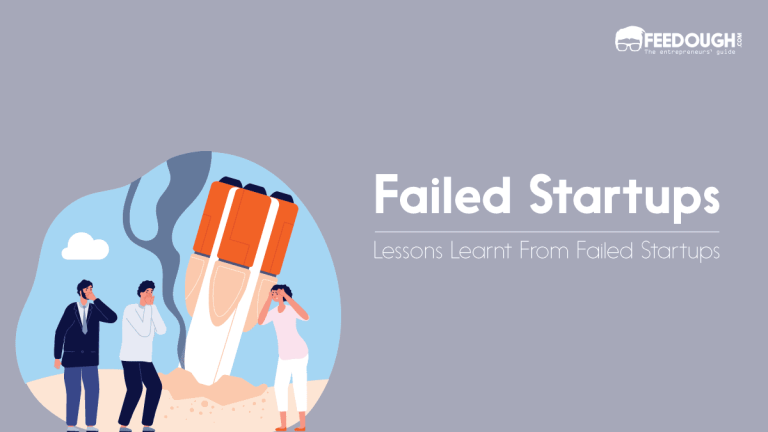Why Emotional Intelligence Is Key to Healthy Relationships

Relationships work because of connection — not superficial attraction or common interests, but the capacity to sense, get in touch with & move through one another’s feelings. This is where emotional intelligence, or EQ, plays a role. It is not about being sensitive or expressive — it’s about paying attention to what’s going on inside & outside of us.
In most contemporary relationships, particularly in cities where the pace of life is already rapid like Pune, emotional intelligence tends to make the difference between long-term comprehension & gradual disconnection. Whether it’s romantic, family or even business-like, EQ establishes the foundations for trust, stability & effective communication.
What Emotional Intelligence Actually Means
Emotional intelligence is essentially the capacity to recognize, manage & respond to emotions — one’s own & other’s. It’s not really about controlling emotions but knowing them well enough to respond wisely instead of reacting reflexively.
The idea is usually split into a couple of prime areas:
- Self-awareness: Noticing emotional patterns & their effects
- Self-regulation: Controlling reactions in tension or conflict
- Empathy: Recognizing other people’s emotional experiences
- Social skills: Steer conversations & resolve tension with sensitivity
- Motivation: Remaining in touch with long-term relationship objectives, even in challenging times
Collectively, these skills enable individuals to remain in touch, even when conversations are problematic or emotions are strong.
Emotional Intelligence vs. Emotional Reactivity
Emotions are a part of all relationships. They add depth, expression & honesty. But when emotions drive without reflection, they tend to turn moments of tension into moments of damage. That’s the distinction between emotional awareness & emotional reactivity.
Reactivity emerges when there is no lag between feeling & response. A disagreement becomes contentious. A thoughtless remark is perceived as a personal attack. At such times, even little things get blown out of proportion into big issues — not because the issue itself is significant, but because the response is automatic & unfiltered. When it becomes a habit, emotional safety is compromised. Trust gets thinner. Intimacy begins to wither.
Emotional intelligence, by contrast, brings space into the present. It doesn’t stifle emotion — it slows things down just enough to respond intentionally. Individuals with high EQ are not necessarily less emotive. They just know their internal cues better & can govern their response more creatively. They know when an interaction demands dialogue, when it demands listening, & when silence may be the most compassionate option.
That doesn’t equate to conflict avoidance or denial of issues. Emotional intelligence actually allows for more authentic disagreement. It prompts people to voice themselves — not to win, but to be heard. The difference is in the manner: with care, not control. With the other person in mind, not oneself.
With the passage of time, the practice maintains connectedness even during trying times. It converts conflict into a moment of comprehension, rather than estrangement — means of growing together, not growing apart.
Why EQ Is More Important Than Compatibility
Although compatibility is what receives most of the focus in relationship tips, emotional intelligence tends to be more relevant in the long term. Similar interests, values or objectives are all good, but without emotional awareness, those may not be sufficient to maintain intimacy.
A pair may be very compatible on paper but have trouble with unresolved resentment, avoidance or emotional withdrawal. Couples with great emotional intelligence, however, tend to stay connected despite life’s ups and downs, even if they have very different personalities.
In most long-term relationships, it’s not sameness that binds people together — it’s the capacity to remain attuned to each other despite changes.
In Relationships, Small Moments Matter Most
EQ manifests strongest in everyday interactions. Picking up on when a partner feels off before they even speak. Pausing in the heat of the moment rather than reacting. Providing support in the manner the other person requires — not necessarily the way one is comfortable giving it.
These minute moments of listening create a foundation of emotional safety. With the passing of time, this safety becomes the context within which more profound intimacy, trust & sexual connection are established.
Clinics such as those in places like Kothrud & Aundh have witnessed a growing number of couples seeking counseling not due to significant problems, but due to the fact that the emotional connection gradually dissipated. In most cases, what is required isn’t greater effort — it’s greater emotional awareness.
Emotional Intelligence & Physical Closeness
There’s a quiet link between EQ & physical intimacy. When partners feel emotionally understood, they’re more likely to feel physically open. The opposite is also true — a lack of emotional connection can make physical closeness feel strained or transactional.
In this manner, emotional intelligence is not only a support for relationship health but also sexual health. It creates a climate in which vulnerability — so important to desire — is received as welcome.
Experts from various specialties, such as a seasoned sexologist in pune near me, tend to notice the way emotional disconnection presents as physical symptoms. Low desire, performance anxiety or avoidance may occasionally have roots tracing back to feeling emotionally unseen or misunderstood.
Can Emotional Intelligence Be Learned?
Unlike personality, EQ is not set. It can be developed, incrementally but significantly, through practice & thought. For those who are stuck in emotional expression, communication workshops, therapy or relationship guide sessions can provide techniques to manage feelings more skillfully.
Even such mild habits as taking a beat before responding, asking questions rather than answering them, or thinking about how one’s words impact others can make big changes in the long run.
Endorsement from the likes of India’s top care givers, such as Allo Health, has made this path the new norm — emotional health as vital a consideration as physical care.
EQ Isn’t Only for Conflict — It Amplifies Joy Too
Emotional intelligence not only aids when there is tension or disagreement, but it increases the good times as well. Laughing together, in-depth conversations, unsolicited kindness — all become more profound when both individuals are emotionally engaged.
EQ makes couples remain curious about one another even after years of being together. It inspires gratitude, celebration & emotional intimacy — not only crisis management.
Last Thought: Emotional Intelligence Builds What Lasts
Any relationship experiences moments of confusion, distance or miscommunication. It’s not the lack of challenge that makes a healthy connection — it’s the way two individuals navigate through those times together.
Emotional intelligence provides relationships with the ability to stretch rather than snap, to grow rather than plateau. It provides a stealthy form of wisdom — one which may not always be showy but is deeply powerful.
Whether it’s through a discussion, a shared moment of silence or a response shift, developing emotional intelligence is an ongoing present — one which deepens not only partnerships, but the individuals within them.






